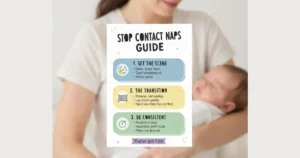Though many consider free range parenting a permissive form of supervision, its aim isn’t simply allowing children to do as they please without supervision but rather helping them experience natural consequences while limiting dangerous situations.
Lenore Skenazy contends that children need guidance from their parents as “physical compasses,” while freedom within limits is healthy for them.
1. Teach them to be self-sufficient
Allow children to explore solutions on their own; even though it might take them longer than expected, this process is an integral part of becoming independent adults. Do not overstep your limits by offering too much help; rather show them how something should be done themselves while offering encouragement to power through any frustration that may come their way.
Teaching kids how to be self-reliant in social situations requires similar techniques. Without their parents around as backup, children must navigate social interactions on their own and discover strategies for handling conflicts between peers (and perhaps adults) in an adult environment.
If you end up helping kids in these situations, be sure to let them know you’re available if they need someone to talk to later and provide resources so they can take charge in solving problems themselves. For instance, if they’re struggling with reading skills, offer resources so they can face any challenges they might encounter on their own rather than doing everything for them yourself.
As your children progress into teens and beyond, teach them to become more independent through tasks like pet care or meal preparation. This also teaches them about caring for others and problem-solving when things don’t go according to plan.
2. Teach them to take responsibility for their actions
Responsible children learn to make better choices and steer away from behaviors that cause others harm. Encourage children to reflect on their choices by asking “How can I fix this mistake?” Likewise, teach your kids that everyone has the right to their own opinions and feelings – teaching empathy is also key in developing compassion!
Encourage them to practice by assigning small responsibilities around the home – whether that’s taking care of pets, chores or tending a garden – which will teach them about responsibility and help prepare them to become independent adults in real life.
Attempt to turn taking responsibility into a game if your child struggles. Give them five points at the beginning of the week and explain that every time they blame others or make excuses for their actions, they lose one point; but this lost point can be earned back if they accept responsibility and apologize for them.
If you’re curious about free-range parenting, take a look at Lenore Skenazy’s site Let Grow for resources and information. While trusting in your children is paramount, always double-check with local laws to ensure no violations have occurred pertaining to child neglect laws.
3. Teach them to be self-vigilant
Free range parenting adheres to a philosophy whereby children learn through natural consequences and confidence-building without excessive parental oversight. Studies have also indicated its success at decreasing anxiety levels, encouraging outside playtime and building problem-solving abilities.
Parents who practice the free-range method encourage their children to explore independently with rules in place that help keep them from getting themselves into dangerous situations. Furthermore, this teaches children self-vigilance as it’s up to them alone to remain safe and resolve issues on their own; something which may prove especially helpful for kids who easily feel overwhelmed in busy or noisy environments.
But as with any cult, the free-range movement may not be for everyone. Some parents find themselves unable to allow their children the freedom of exploration on their own and this can increase anxiety and feelings of inadequacy in some children. Furthermore, this philosophy doesn’t encourage its adherents to view empirical research on child development or consult parenting experts, something all parents should do regularly.
But there are many things parents can do to promote the independence of children without adopting a strict free-range parenting stance. For instance, they could teach their kids how to safely use public transit by allowing them to ride in the front seat of a taxi; teach them basic cooking techniques using straightforward recipes; advocate for change within their communities with resources like Strong Towns that provide ideas on inexpensive ways to enhance street safety such as planting trees along roads and installing speed bumps; advocate for changes within their communities by joining Strong Towns groups that offer ideas on ways they could better increase street safety – these ideas could help immensely!
4. Teach them to trust in themselves
As your children mature, it becomes important that you can trust them to make wise decisions and become self-reliant. You will need to allow them to manage themselves on their own without hovering too closely – although this may feel risky at first! But teaching them how to navigate themselves and allowing mistakes will teach them that they can manage things on their own.
The free range parenting method encourages kids to engage in the kind of outdoor play that was once common and teaches them to navigate their world without parents in sight. While these skills are invaluable, kids also need an emotional compass in the form of strong bonds between themselves and their parents that continue even when separated by time or distance.
Free-range parents like Lenore Skenazy emphasize setting ground rules with their children before giving them independence. If your child wants to go out alone for lunch, for instance, make sure they know the route and contact details so if anything should go amiss they can reach you easily if necessary. Furthermore, conveying confidence can go a long way; when your kid sees that you believe in them and trusting in their abilities.



